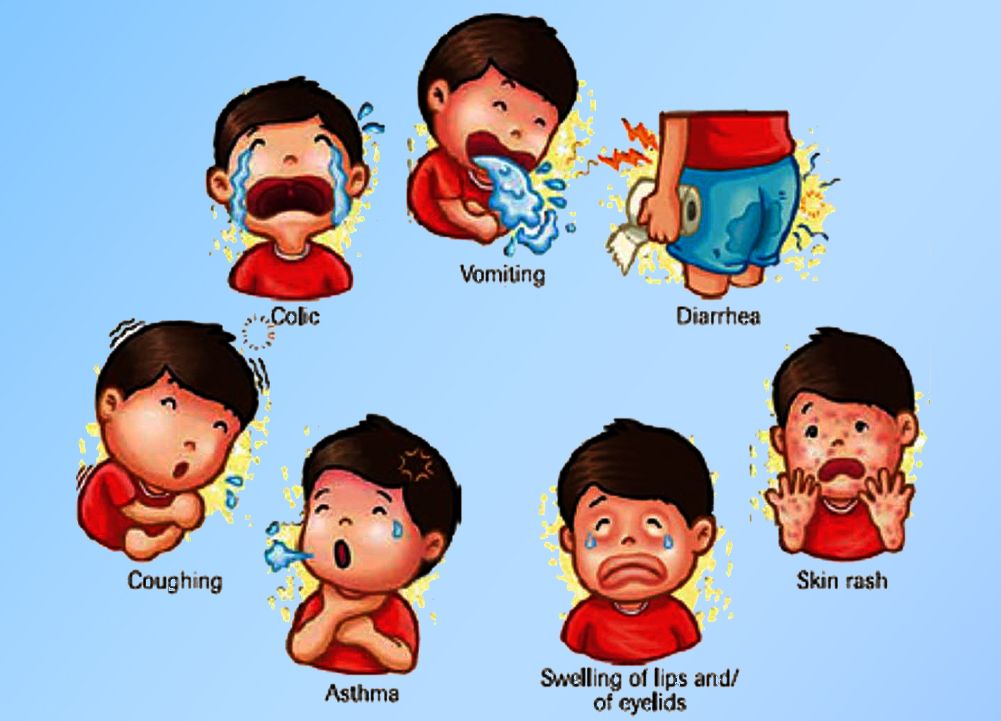Food Allergy And Intolerance
First thing first, you should have the knowledge that food allergy cannot be used synonymously to food intolerance. It will be a novice to say you have a food allergy when you are actually suffering from food intolerance. Food allergy and food intolerance have a very slight but important difference between the two.
One is about the immune system whereas the other is about the digestive system. Food allergy is when your immune system reacts to the consumption of certain foods. It results in rashes, itchiness, dizziness, which may cause severe life-threatening reactions such as anaphylaxis. Contrary to this, food intolerance is mainly when you are not able to digest your food properly, hence it is more of a digestive system response. It may result in irritation, hives, sneezing, but it is not life-threatening.
Symptoms of Food Allergy and Intolerance
Food Allergy
The symptoms of food allergy are noticeable within a few minutes or within 2 hours of consuming the repulsive food. Those signs include:
- Tingling or itching in the mouth
- Hives or eczema
- Swelling of the body parts, such as lip, throat
- Dizziness, faintness, lightheadedness
- Diarrhea, puking, nausea, abdominal pain
- Rapid pulse
- Shock along with a drastic drop in blood pressure
 Food Allergy And Intolerance
Food Allergy And Intolerance
Food Intolerance
The symptoms of food intolerance take time to be visibly acknowledged. It may take hours. The symptoms will look similar to food allergy, but you can differentiate if you have a food allergy or an intolerance. If you are allergic to a particular food, you will always face issues coming in contact with the food, whereas, if it is a food intolerance then it is just a one or two-time issue, and you will not always face the same problems. Some of the common symptoms of food intolerance are:
- Heartburn
- Nausea
- Stomach ache
- Puking
- Gas, cramps
- diarrhea
Causes of Food Allergy
Our immune system is designed in such a way that it detects and fights the germs, like bacteria and viruses so that we do not get sick. Sometimes, they make mistakes and attack things that are not harmful. Food allergy is caused when our immune system attacks a food protein. Our body secrets different enzymes, one of which is immunoglobulin E(IgE) which fights against the food allergen. In this process, they secrete certain chemicals that cause allergic reactions. Due to such chemical reactions, your body will struggle with rashes, blemishes, itchiness.
All the causes of food allergy are not known until now, but research suggests that it is very much related to genetics and environmental forces. Your family history also plays a role in determining the chances of you being allergic.
Treatment
The very first step is to approach a doctor and ask him/her if you are suffering from food allergy or intolerance. If you have a food allergy, the best way you can adopt is to identify the food you are allergic to and stay away from the food. This will reduce the chances of allergic reactions.
There are two medications that are used to treat allergy:
- antihistamines – used to diagnose allergies that are mild to moderate level.
- adrenaline – used to diagnose extreme allergic situations such as anaphylaxis.
For food intolerance, you can
- Consume the food in a small proportion
- Take supplements that will help you digest the food.
In a severe allergic situation, you may need to take an immediate injection of epinephrine and may also need to visit an emergency room.
- If your doctor prescribes to take autoinjector, make sure you know how to use the auto-injector
- Always carry your autoinjector.
- Make sure you keep in mind about the expiry date and use before the last date.
- Never use expired medicine
It is always healthy to know what you are suffering from and then be sure you do all the necessities once you know your issue because prevention is always a must when it comes to your body. One lenient step may affect you a lot.
Also Read: Beat Your Allergy With Ayurveda

